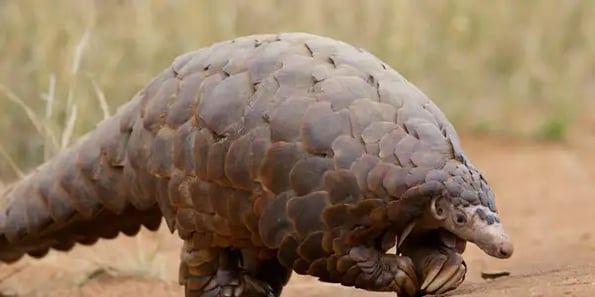Last week, customs officers in Shenzhen, China announced that, back in July, they carried out one of the biggest busts in history.

This bust wasn’t a drug haul, a human trafficking operation, or a bootleg factory: it was a shipping crate full of 11.9 tonnes of scales from an estimated 30k pangolins.
Why pangolins?
The pangolin (which looks like a cross between an armadillo and an artichoke) has the unfortunate distinction of being the only mammal in the world to have scales made of keratin — the same protein in human hair, fingernails, and skin.
These scales are highly prized in traditional Chinese medicine and are thought to cure a variety of health ailments like cancer and asthma. Pangolin meat is also a delicacy, reserved for high-end banquets.
That means more than 1m pangolins have been poached in the past decade — making the pangolin the most heavily trafficked mammal in the world.
There are efforts underway to protect them
In 2016, 180 countries unanimously agreed to issue a ban on all international trade of the world’s 8 pangolin species.
But massive raids continue to uncover record quantities of smuggled pangolin (in 2013, 22k pounds of pangolin meat was found on a Chinese vessel), and this latest bust is nearly 4x bigger than any other on record. In other words, we’ve still got a long way to go.

